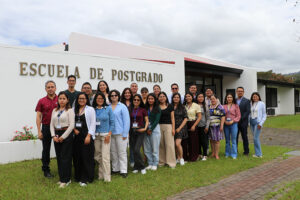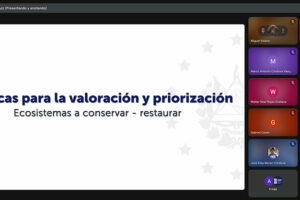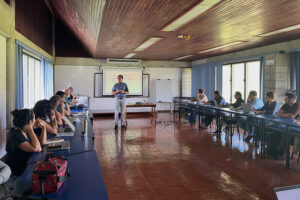Defenders of the Tortuguero Forest strengthen capacities in environmental human rights
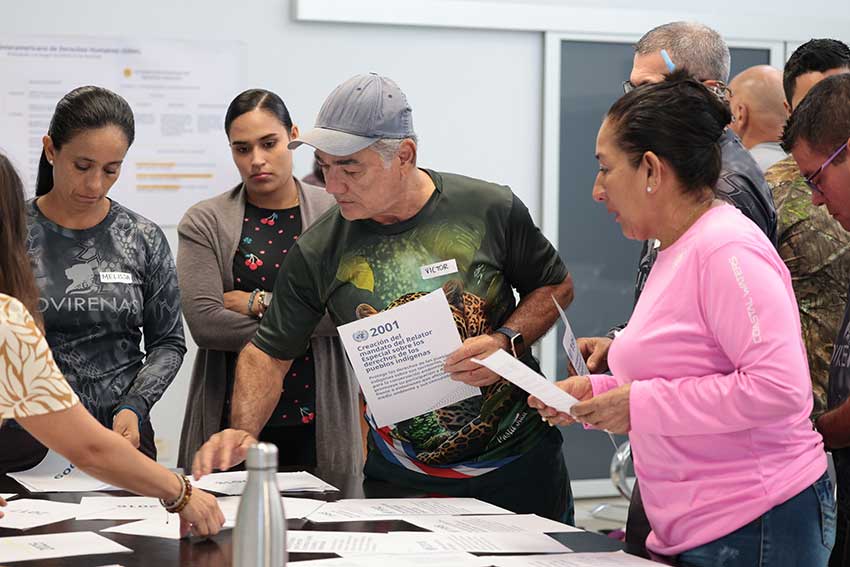
- CATIE, in collaboration with the National System of Conservation Areas (SINAC), launched the Course on Environmental Human Rights in Tortuguero, in the province of Limón, Costa Rica.
On September 21, 2025, at the auditorium of Tortuguero National Park (PNT), 19 people involved in forest protection participated in Module I of the Course on Environmental Human Rights and the Protection of the Great Forests of Mesoamerica (GBM), developed within the framework of the Weaving Networks project.
The event was attended by Nazareth Porras, Project Officer of the European Union; Leida Mercado, project leader from CATIE (Tropical Agricultural Research and Higher Education Center); and Andrés González, responsible for citizen participation and governance at SINAC in Tortuguero National Park, who gave the opening remarks.
The group of participants included the Natural Resource Surveillance Committees (COVIRENAS), park rangers, naturalist guides, and community leaders (both men and women).
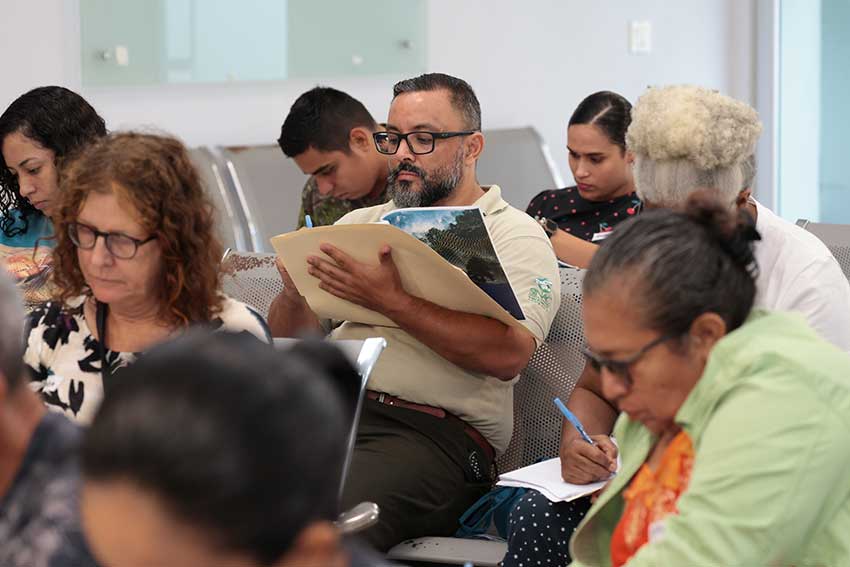
El contenido lo impartió un grupo de personas expertas en las temáticas de derechos humanos ambientales. Durante la jornada, las personas participantes se reconocieron como defensoras de los derechos humanos ambientales, aprendieron el concepto de interseccionalidad que, según Leocadia Liriano Bonifacio, líder ambientalista y afrodescendiente, “sirve para visibilizar las discriminaciones hacia las personas vulnerables”, como lo son las personas defensoras que reciben amenazas y que, según su testimonio, enfrentan dificultades a la hora de denunciar estas situaciones ante las instituciones públicas.
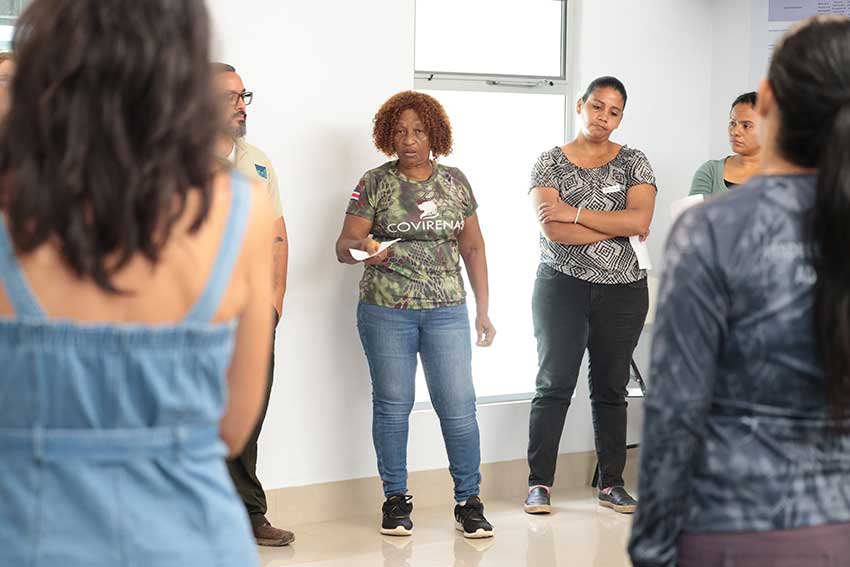
They also learned about the international and regional human rights protection systems and milestones such as the Advisory Opinion of the Inter-American Court of Human Rights regarding Climate Change, and the Escazú Agreement, the latter presented by Camila Marín from the Escazú Alliance Costa Rica.
At the end of the day, community leader Víctor Barrantes shared that “I had a mistaken concept (about the Agreement), formed mainly through the brief analysis that was given on social networks.” During the session, he learned about other national laws addressing access rights and now believes that ratification can “enrich our environmental protection laws with greater access to information, justice, and environmental democracy.”
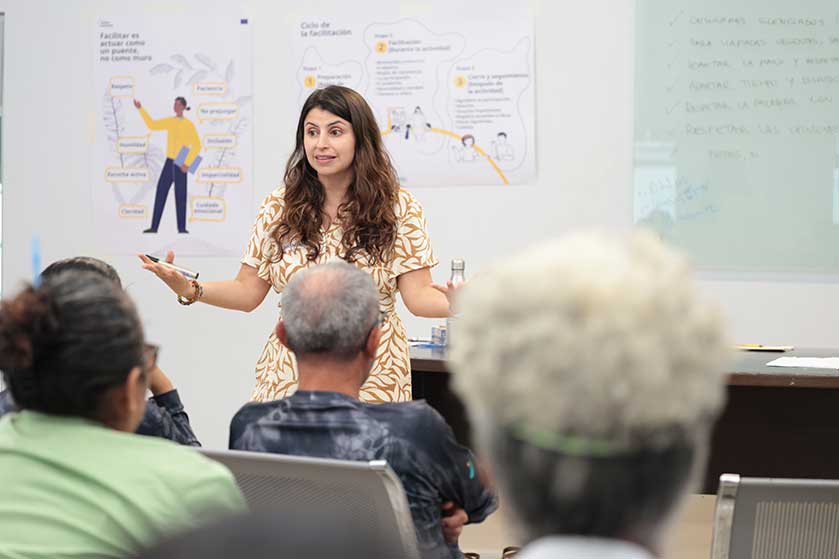
The participants highlighted the opportunity to learn about Costa Rica’s environmental legal framework, acquire tools to strengthen their commitments as defenders, and share the content within their areas of action. Dr. Natalia Castro Niño, one of the facilitators and a lawyer at the Inter-American Court of Human Rights, emphasized that these capacity-building spaces for defenders are an opportunity to show them that “everything they do at the local level is very valuable and, at the same time, that they are not alone because there are people working in other places to support them.”
The session was conducted in an atmosphere of trust, openness, and solidarity, which favored the exchange of ideas and experiences among the participants. From beginning to end, participation was active and enthusiastic, fostering an enriching dialogue in which personal experiences and reflections were shared.
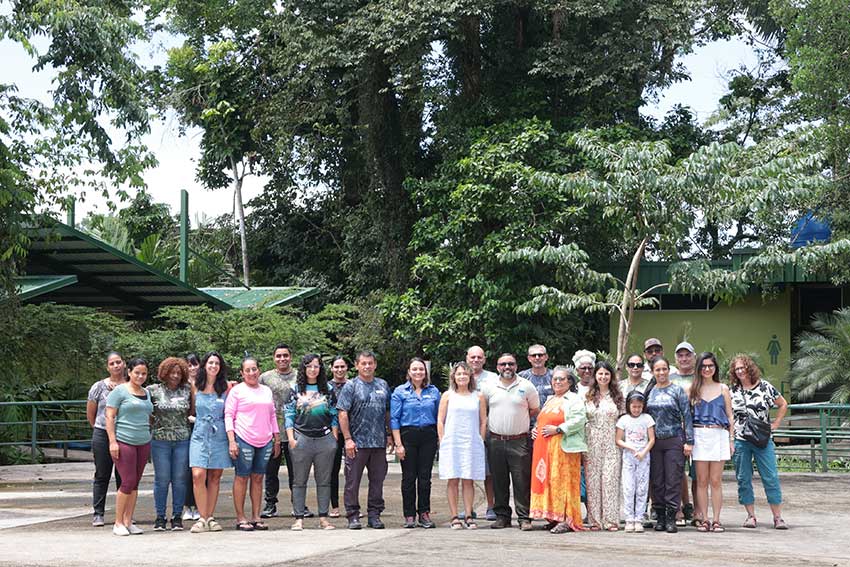
This course will continue with Module II: Forests, livelihoods, and environmental governance, to be held in October, and will conclude with Module III: Identification and management of threats to environmental human rights defenders, in November.
The Weaving Networks project is implemented by the International Union for Conservation of Nature (IUCN) and CATIE, with funding from the European Union and Sweden, through the Swedish International Development Cooperation Agency (ASDI). Likewise, Weaving Networks is part of the European Union’s Great Mesoamerican Forests Program, with a regional scope that covers the territories of the Maya Forest, La Mosquitia, the Dry Corridor Trifinio, Indio Maíz-Tortuguero, La Amistad, and Darién.
_____
Photos: Fidel De Rooy.
More information/written by:
María Sol Gonzalez Sanudo
Specialist in Human Rights, Environmental Rights, and Forest Equity
Environmental Economics and Sustainable Agribusiness Unit
CATIE
sol.gonzalez@catie.ac.cr

